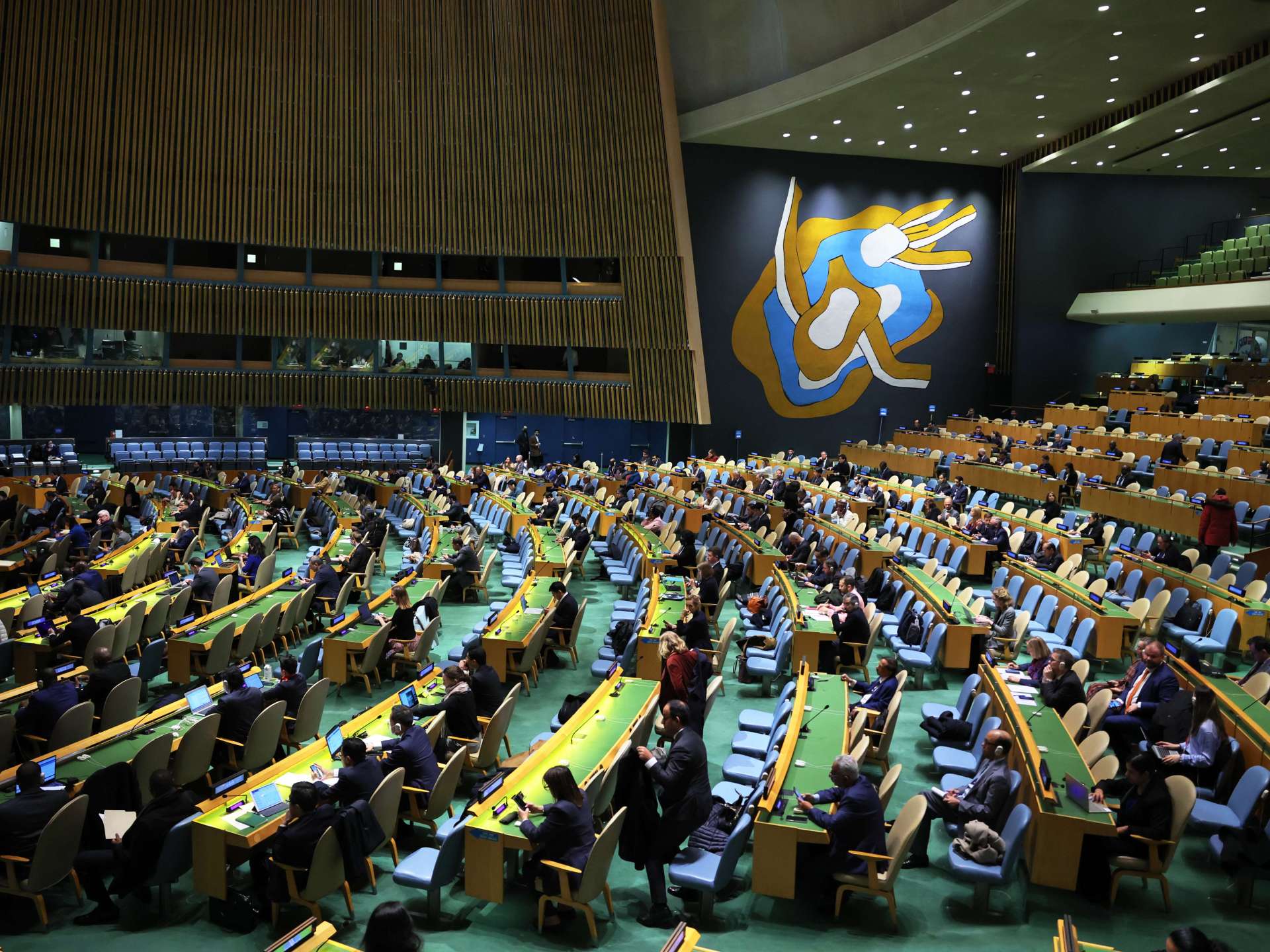39 countries in the United Nations called on Israel to immediately reverse the punitive measures it has taken against the Palestinians, in response to a request for an advisory opinion from the International Court of Justice on settlements and Israel's continued violation of the rights of the Palestinians.
In a joint statement issued by them, the states affirmed their firm support for the International Court of Justice and international law as the cornerstone of the international system, and affirmed their adherence to the multilateral system.
It is noteworthy that the United Nations General Assembly voted at the end of last month in favor of a Palestinian draft resolution asking the International Court of Justice to issue a legal opinion on whether the Israeli occupation of the Palestinian territories constitutes a de facto annexation.
The draft resolution requests the International Court of Justice to issue an advisory opinion, outlining the legal consequences arising from Israel's continued violation of the right of the Palestinian people to self-determination, its long-term occupation, settlement and annexation of lands, and its adoption of discriminatory legislation and measures.
A majority of 87 countries voted in favor of the request for opinion on the draft resolution of the United Nations General Assembly - submitted by Palestine, while Israel, the United States and 24 other members voted against the resolution, and 53 members abstained.
Israeli sanctions
Following the vote, the Israeli government announced on the sixth of this month the adoption of 5 sanctions against the Palestinian Authority, which included deducting funds from Palestinian financial dues, freezing Palestinian construction plans in Area C, denying Palestinian personalities movement permits, in addition to taking measures against organizations in West Bank, which promotes what it described as "hostile activity" against Israel.
And the General Assembly of the United Nations voted on December 16 in New York by an overwhelming majority on a resolution supporting the right of the Palestinian people to self-determination.
The last time the International Court of Justice dealt with the Palestinian-Israeli conflict was in 2004, when it ruled that the Israeli separation wall was illegal, and Tel Aviv opposed the court's opinion.

